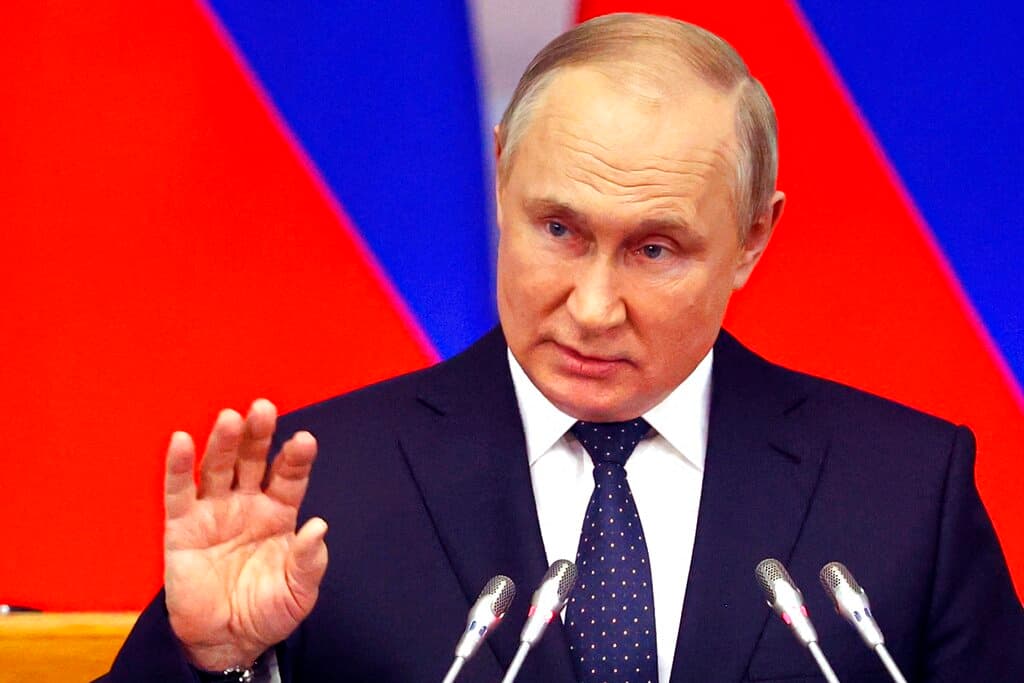Fight for the Kramatorsk Pocket and Other Developments in Russian War
The Russian army is reeling from more than 30,000 casualties from among its youngest and best-trained troops.

The relative lull that followed the Russian army’s withdrawal from Kiev ended with the commencement of its long-anticipated offensive in Eastern Ukraine. Russian units are now attacking both flanks of the Kramatorsk Pocket in an attempt to surround and destroy Ukrainian units holding the line in that sector.
The Kramatorsk Pocket is a 50-mile bulge into Russian lines between the pro-Putin separatist Donetsk-Luhansk region in the south and invading Russian units to the north. Reports from the battlefront indicate that two Russian battalion tactical groups are attacking south from the Izium area in an attempt to reach the Sloviansk-Barvinkove highway and sever a major supply route for Ukrainian forces defending the Pocket.
New Blood at Top — and Bottom?
Ukrainian news sources are reporting that a Russian chief of staff general has arrived in Izium to take personal command of this renewed offensive. General Valery Gerasimov previously served as commander of the Russian expeditionary force in the Middle East, where his favored tactic of indiscriminate carpet bombing earned him the sobriquet “Butcher of Syria.”
Yet, it is unlikely that General Gerasimov’s arrival on the scene will reinvigorate Mr. Putin’s foundering war effort. In the words of a noted military geostrategist, Edward Luttwak: “The Russian army is greatly stretched, reliant on unwilling conscripts, very few of whom seem to be eager to fight, while the much-filmed Chechens and rumored Syrians can only frighten unarmed civilians, not fight in earnest.”
The Russian army is reeling from more than 30,000 casualties from among its youngest and best-trained troops. Many of its most modern weapon systems now line the roads of Ukraine as rusting hunks of scrap metal. It is questionable whether even a brutish commander like General Gerasimov will accomplish anything other than fostering a new series of war crimes by Mr. Putin’s army and its Chechen hirelings.
Trouble in Transnistria?
There’s been considerable speculation in the media of late about reports that a new battlefront might be opening on Ukraine’s western border with a pro-Russian break-away province called Transnistria.
The Pridnestrovian Moldovian Republic – aka, Transnistria – is a narrow sliver of territory sandwiched between the Dniester River and Ukraine that seceded from the Republic of Moldova after the collapse of the Soviet Union in 1991.
During the ethnic civil war that ensued, the Russian 14th Guard Army intervened on the side of the Transnistrian rebels, sealing their victory and independence. A force of about 1,500 soldiers of the Operational Group of Russian Forces in Transnistria has been posted there ever since.
A sudden series of mysterious explosions in recent days throughout Transnistria generated fears of a Russian Spetsnaz false-flag operation designed to provide a casus belli for an invasion of the province. The speculation is that while you might take Mr. Putin out of the KGB, you can’t take the KGB out of Mr. Putin.
The mediocre performance of the Russian military renders such a scenario implausible. The closest point Russian forces ever came to Transnistria was outside the city of Mykolaiv, a town they never managed to capture and that is 100 miles and six rivers away. There is zero likelihood that the Russian army in its diminished state would be able to prevail against Ukrainian defenses.
So Long, Siloviki?
It’s said there is no honor among thieves, and what holds true for larcenists of the petty variety can also be applied to Russia’s oligarch class that stole its way into billions of dollars’ worth of ill-gotten gains after the collapse of the Soviet Union.
Kremlinologist Andrei Soldatov is reporting on growing disquiet within the upper ranks of Russia’s national security establishment over the military debacle in Ukraine. Writing in Foreign Policy, Mr. Soldatov and co-author Irina Borogan explain how the taint of incompetence has begun to erode Mr. Putin’s standing among the “Siloviki,” as Russia’s security elite are known.
“The Siloviki are ruthless in protecting their own interests, and there is one way, at least, that they might lose faith: if Russia’s economic troubles reach the point that its regional governors begin to break ranks with Putin and the economic order that has sustained Putin’s security state for more than 20 years begins to collapse. Then the Siloviki may well conclude that the Kremlin is losing control of the country and that their own future is threatened. In that case, they could step aside and let it happen — or even provide a hand.”
For just about everyone, this is a scenario that can’t occur too soon.

